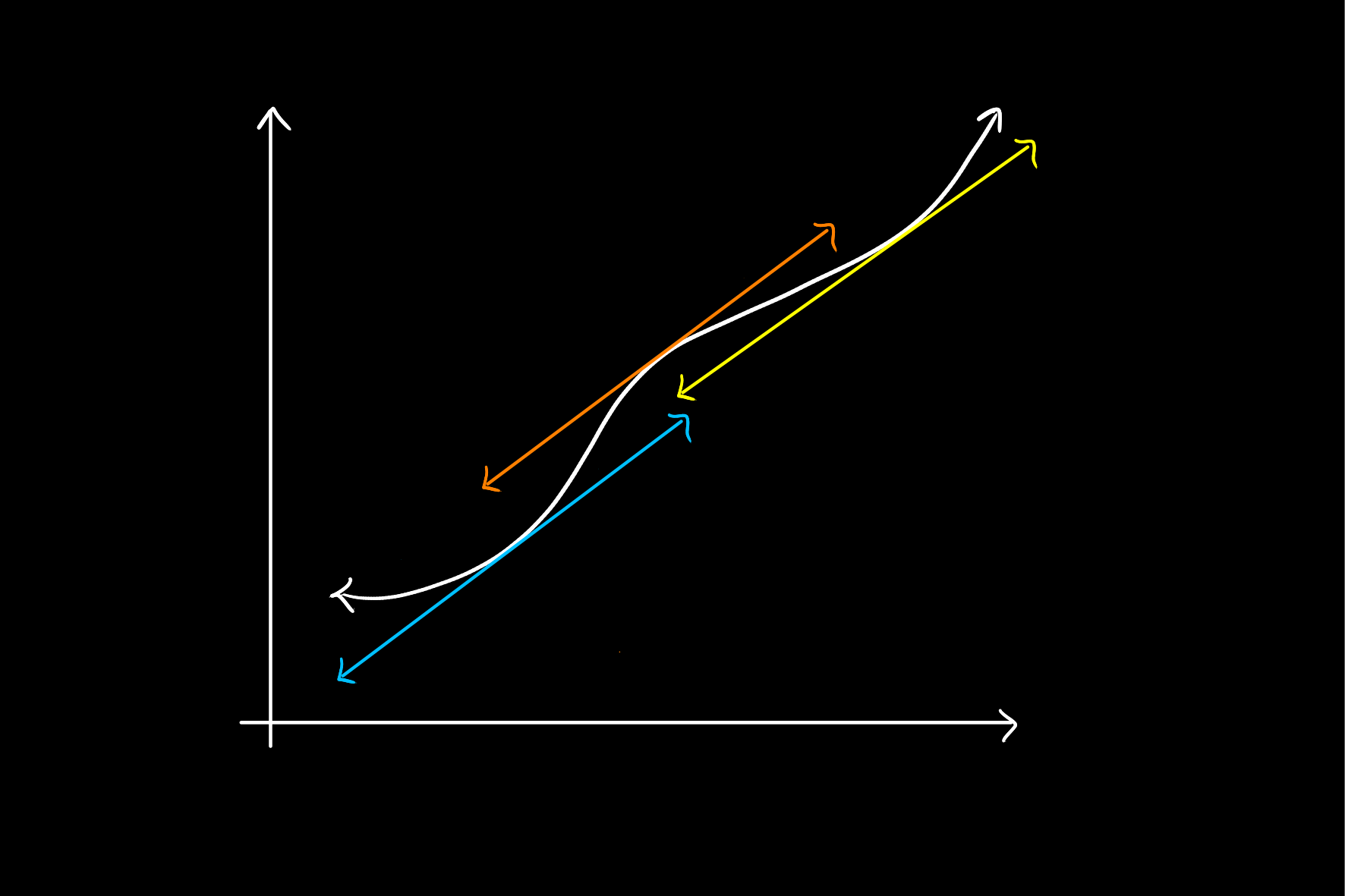Monotonicity and Sign of Derivative
If the sign of the derivative of a real function is unchanging, the function is monotonic, either increasing or decreasing depending on the sign. This should be intuitive from the way the derivative is defined, since a positive derivative at all points on some interval corresponds with an increasing tangent at all such points.

If \(f\) is continuous on \([a, b]\) and \(f'(x) > 0 \enspace \forall x \in (a, b)\), then for all \(y, z \in (a, b)\):
That is \(f\) is monotonic increasing.
Proof
Because differentiability implies continuity, given that \(y, z \in (a, b)\) where \(f\) is differentiable, \(f\) is continuous on \([a, b]\).
Applying the mean value theorem to \(f\) over \([y, z]\), there exists a \(c \in (a, b)\) such that for all \(y, z \in (a, b)\):
Given that \(y < z\), \(y - z < 0\) and therefore we must reverse the inequality through multiplication, yielding
If \(f\) is continuous on \([a, b]\) and \(f'(x) < 0 \enspace \forall x \in (a, b)\), then for all \(y, z \in (a, b)\):
That is \(f\) is monotonic decreasing.
If \(f\) is continuous on \([a, b]\) and \(f'(x) \geq 0 \enspace \forall x \in (a, b)\), then for all \(y, z \in (a, b)\):
That is \(f\) is monotonic non-increasing.
If \(f\) is continuous on \([a, b]\) and \(f'(x) \leq 0 \enspace \forall x \in (a, b)\), then for all \(y, z \in (a, b)\):
That is \(f\) is monotonic non-increasing.